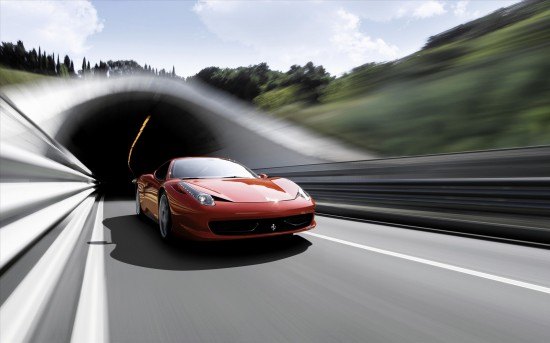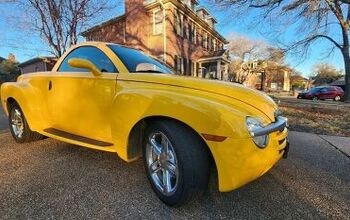Traffic Tickets On A Sliding Scale? Maybe It's Time
In January 2010 a Swiss court handed down a $290,000 fine on a traffic violation. To be sure , the violation in question was a big one and involved speeds approaching 180mph. Police say that, once they rolled in behind the speeding car, it took it nearly a half mile to come to a complete stop. Apparently the driver had avoided earlier detection by radar controlled cameras because his speed was so high that it exceeded the cameras’ ability to measure the car’s velocity. Despite the severity of the offense, it was not the car’s speed that caused the severity of the fine, it was the driver’s income. That’s an idea I think I could get behind.
Think about it. As the gap between the rich and the poor in our society continues to widen, we are setting ourselves up for a situation where the elite can do virtually anything they damn well please. Drive like an ass and that’s a $1000 fine. For you and I that’s quite a bite but to a hedge fund manager making well into the six figures it’s chump change. He can pay that with a smile and go right back to putting the rest of us in danger.
Of course our hypothetical investment banker will eventually score enough points to lose his license, but before that happens he may have other options that will keep him on the road longer than you or I. Higher insurance rates are no bother. The cost of driver retraining and other methods used by state to reform habitual traffic offenders is minor. In some states they even let you choose your own driver’s school, and if the option exists he may end up hooning around on a racetrack as part of an advanced driver safety course rather than spending our Saturday in an overheated classroom with the rest of us budget conscious rejects.
Thank God the rich have enough political influence to stamp out this idea before it can even take root, but let’s ponder an egalitarian society where people are actually expected to redress their wrongs. As my old man used to inform me before he had to do what hurt him more than it hurt me, you aint gonna learn if you don’t feel the burn. Call it “class warfare” if you like, but if I have to feel the heat, why shouldn’t everyone?
Thomas Kreutzer currently lives in Buffalo, New York with his wife and three children but has spent most of his adult life overseas. He has lived in Japan for 9 years, Jamaica for 2 and spent almost 5 years as a US Merchant Mariner serving primarily in the Pacific. A long time auto and motorcycle enthusiast he has pursued his hobbies whenever possible. He writes for any car website that will have him and enjoys public speaking. According to his wife, his favorite subject is himself.
More by Thomas Kreutzer
Latest Car Reviews
Read moreLatest Product Reviews
Read moreRecent Comments
- Dwford I don't think price is the real issue. Plenty of people buy $40-50k gas vehicles every year. It's the functionality. People are worried about range and the ability to easily and quickly recharge. Also, if you want to buy an EV these days, you are mostly limited to midsize 5 passenger crossovers. How about some body style variety??
- SCE to AUX The nose went from terrible to weird.
- Chris P Bacon I'm not a fan of either, but if I had to choose, it would be the RAV. It's built for the long run with a NA engine and an 8 speed transmission. The Honda with a turbo and CVT might still last as long, but maintenance is going to cost more to get to 200000 miles for sure. The Honda is built for the first owner to lease and give back in 36 months. The Toyota is built to own and pass down.
- Dwford Ford's management change their plans like they change their underwear. Where were all the prototypes of the larger EVs that were supposed to come out next year? Or for the next gen EV truck? Nowhere to be seen. Now those vaporware models are on the back burner to pursue cheaper models. Yeah, ok.
- Wjtinfwb My comment about "missing the mark" was directed at, of the mentioned cars, none created huge demand or excitement once they were introduced. All three had some cool aspects; Thunderbird was pretty good exterior, let down by the Lincoln LS dash and the fairly weak 3.9L V8 at launch. The Prowler was super cool and unique, only the little nerf bumpers spoiled the exterior and of course the V6 was a huge letdown. SSR had the beans, but in my opinion was spoiled by the tonneau cover over the bed. Remove the cover, finish the bed with some teak or walnut and I think it could have been more appealing. All three were targeting a very small market (expensive 2-seaters without a prestige badge) which probably contributed. The PT Cruiser succeeded in this space by being both more practical and cheap. Of the three, I'd still like to have a Thunderbird in my garage in a classic color like the silver/green metallic offered in the later years.


































Comments
Join the conversation
The sliding scale is an interesting notion, except for one minor detail: the Equal Protection Clause of the Constitution. It basically means all laws apply equally to all citizens. So a speeding infraction can't cost a rich guy more than a poor guy. That's the true definition of egalitarianism, not the distorted, class-envy-tinged definition you're promoting. If we run with your notion, why can't that sliding scale apply to every infraction, including criminal infractions? Who decides it? Some left-wing judge with lifetime tenure? Rich people aren't the problem in America. Government is the problem. And another thing: I've seen plenty of high-end Bimmers and Porsches being driven with great care and respect for others on the highway. Meanwhile, I've been terrorized by plenty of 15-year-old Corollas and Civics, ostensibly driven by your stainless and virtuous "poor" people.
We've already got the IRS involved in our health care system and I don't want to make them part of our transportation system too.